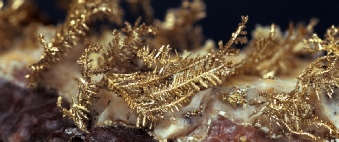Discovery of Great Britain by the Romans.
The mercantile Phoenicians traded to the Scilly islands, the Cassiterides , or land of tin , from the port of Cadiz , four hundred years before Christ. The Romans, for a considerable time, could not discover the place from whence the former procured the precious metal. They attempted to detect the trade, by following the course of a Phoenician vessel; but the master, faithful to the interest of his country, voluntarily run his ship ashore in another place; preferring the loss of all, rather than sillier n. foreign nation to become partakers of so profitable a secret.
The public immediately compensated Iris loss out of its treasury . This did but make the Romans more eager for the discovery; and after many trials they succeeded. Publius Crassus (father of Marcus Crassus the Triumvir) who was praetor, and governed Spain for several years, landed in the Cassiterides, and found the report of their riches verified.
As soon as the Romans made a conquest of the country, they formed in the tin province camps and roads, still visible; and left behind vases, urns, sepulchres, and money, that exhibit daily proofs of their having been a stationary people in those parts” ; and that Dunmonium extended even to the Belerian promontory, or the Land’s-
TIN
COPPER
And was not, as some writers imagine, limited by the western parts of Somersetshire.
It is not to be imagined, that they could neglect a corner of our island, productive of a metal so useful in mechanics as tin, and which it yielded in such plenty, as to receive from that circumstance the name.
So great was the intercourse that foreign nations had with the inhabitants bordering on Belerium, as to give them a greater scavoir vivre, and more extensive hospitality, than was to be found in other parts of the island.
They were equally expert in working the mines, and preparing the ore, which lay in earthy veins within the rocky strata.
They melted and purified it, then cast it into rows of cubes, and carried it to let is, the modern Mount St. Michael: from thence it was transported into Gaul; conveyed from the place it was landed at, on horses’ backs, a journey of thirty days, to the mouth of the Rhone, and also to the Massylians, and the town of Narbonne".
Copper. Did not Caesar and Strabo agree in their account, I should never have believed it possible that the Britons could have neglected their rich mines of copper, and have been obliged at first to import that metal. Perhaps the ore was less accessible, and the art of fusion unknown; for islands, from their very situation, must remainlonger ignorant of arts than continents; especially ours, which lay far to the west of the origin of all science.
Strabo says, that the Britons imported works of brass; but it is as certain, that they afterwards did themselves fabricate that metal into instruments.
The Celts, a British, instrument, was made in this island.
Numbers have been found in Yorkshire, and Essex", together with cinders, and lumps of melted metal; which evince the place of a forge. The Romans had then founderies of copper in our island; and cast the metal into regular forms.
A mass was found at Caer hen, the antient Conovium, four miles above Conway, which probably was smelted from the ore of the Snowdon hills; where of late years much has been raised.
This mass is in shape of a cake of beeswax; and on the upper part is a deep concave impression, with the words Socio Romae; across these is impressed obliquely, in lesser letters, Natsol.
I cannot explain it, unless Nat. stands for Natio, the people who paid this species of tribute; and sol. for solvit, that being the stamp-
The weight of this antiquity is forty-
